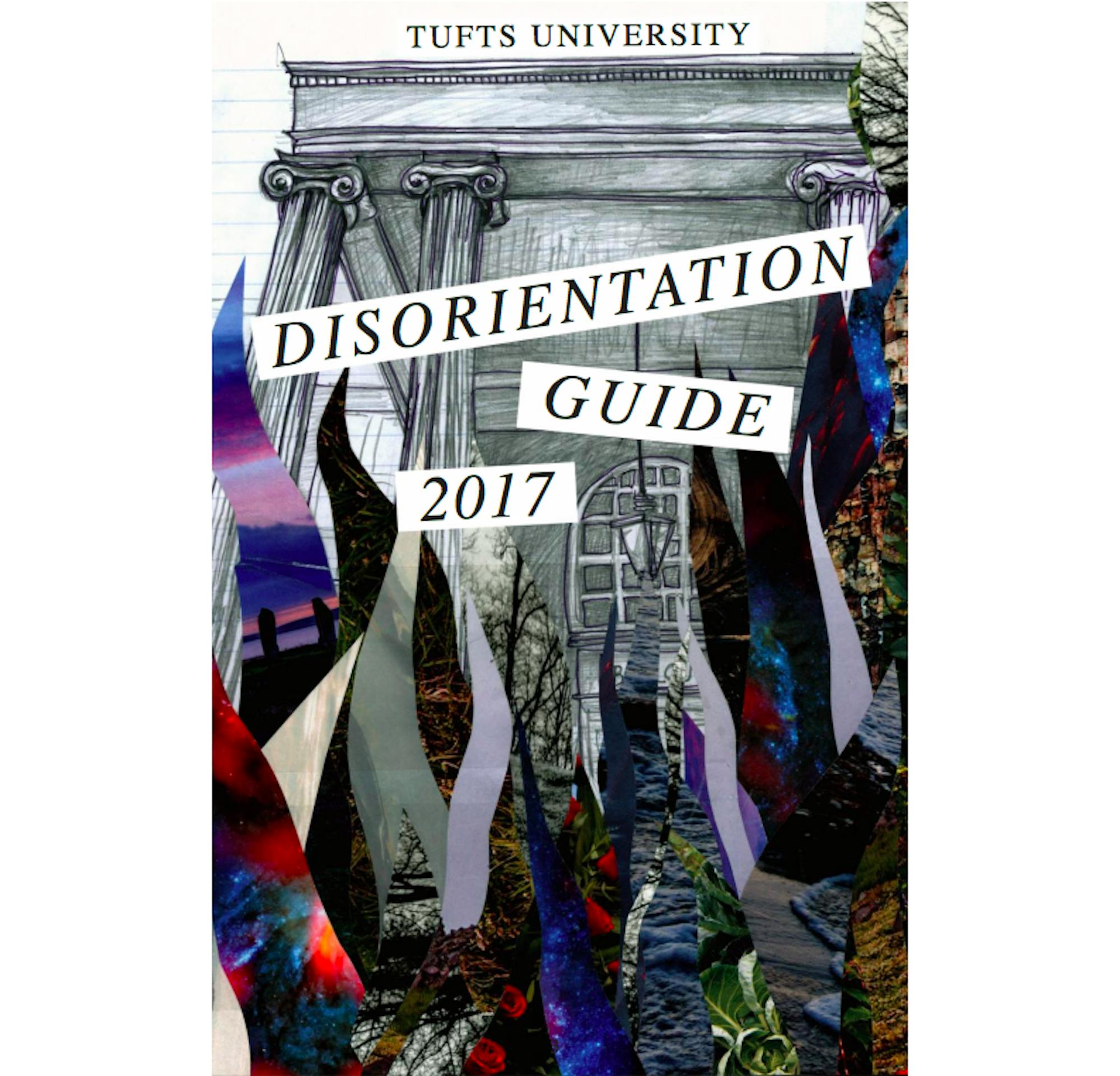The Tufts Disorientation Guide was removed from the official Tufts University Class of 2020 and 2021 Facebook pages on Sept. 3 in response to complaints received by the administration about some of the content of the guide, according to Patrick Collins, Tufts University executive director of public relations.
According to a letter sent to the Tufts community by University President Anthony Monaco and Provost and Senior Vice President David Harris via email, the guide was removed on the grounds of “contain[ing] some deeply disturbing characterizations with respect to groups and individuals on campus.”
The letter goes on to explain that the guide contained “divisive and offensive assertions” about Tufts Hillel, which were not in line with the values of the university and did not meet university expectations about respectful civil engagement on campus.
“We do not believe it is in accordance with the values of the university to impugn the integrity and good will of the many Jewish students on campus who are engaged in Hillel,” Monaco and Harris said in the letter.
Unnamed contributors to the Disorientation Guide posted a response to the guide's critics on Sept. 13, countering that its statements about Hillel, which only represented a small section of the over 100-page publication, did not justify the guide's removal from the class Facebook pages.
"Censorship by university administrations should alarm everyone, and censorship of a 115-page document because of ONE SENTENCE is downright terrifying," the post read.
While the statement by Monaco and Harris said the guide was "misleading about some student organizations," Hillel was the only example cited.
When asked for comment, a writer of the Disorientation Guide declined to be interviewed.
Dean of Student Affairs Mary Pat McMahon also published a response critiquing the guide on the Student Affairs website.
“[The] broad and disparaging characterizations of some campus organizations runs counter to our values as an inclusive community,” she said.
McMahon also responded to questions that had been raised about free speech.
“Although we respect students’ rights to free speech, we have always reserved the right to remove unauthorized content from official University Facebook pages and groups, especially when leaving the content posted could be interpreted as an endorsement,” McMahon wrote in the statement.
Rabbi Jeffrey Summit, the Neubauer executive director of Tufts Hillel released a response to the guide on the Hillel website on Sept. 12.
“Tufts Hillel is deeply disturbed by the language in the unofficial ‘2017 Disorientation Guide’ that has been circulating on our campus that implies that Hillel supports white supremacy. We do not believe that a group of students should make defamatory and false claims against other students on social media,” Summit said.
In his statement, Summit alludes to a section of the Disorientation Guide that calls Hillel “an organization that promotes a white supremacist state.”
Summit wrote in an email to the Daily that many students had reached out to the administration on their own in response to multiple aspects of the guide.
Paulina Ash, the president of the student executive board of Hillel, told the Daily in an email that she also disagreed with the characterization of Hillel in the guide.
“I, along with many other students, was uncomfortable and disturbed by the fact that the Disorientation Guide called Tufts Hillel an organization that promotes a white supremacist state,” Ash, a senior, said. “These words are false and I believe that they were harmful and hurtful to many students on campus."
Ash disagreed with the guide's portrayal of Hillel as exclusively pro-Zionist.
"Hillel is a Zionist space at Tufts, equating anti-Zionism with terrorism and not allowing anti-Zionist students to join the charter," the guide reads.
Ash countered that Tufts Hillel is a place where people can gather to talk regardless of their beliefs.
“[Tufts Hillel] is open to having conversations with people with a wide range of opinions and beliefs about Israel,” she said.
Writers of the Disorientation Guide responded to what they felt was an inappropriate assumption that the guide's statements about Hillel were inherently anti-semitic.
"There have been critiques on campus and beyond saying that tying Hillel to White supremacy is inherently antisemitic," they wrote in the statement. "We, writing this as two White Jewish students at Tufts who worked on the Disorientation Guide this year, want to reframe this conversation to focus on how White Supremacy and anti-Semitism are linked and, for that reason, our liberation as Jewish people — White Jews and Jews of color alike — is bound up with the destruction of White Supremacy."
Ilyssa Silverman, a member of the Tufts Hillel student board, thought the argument linking white supremacy and anti-semitism was particularly illogical.
“That [argument] would then be calling Hillel an anti-Semitic organization," Silverman, a sophomore, said. "Additionally, if they’re claiming Israel is a white supremacist state, they’re calling the state of Israel anti-Semitic."
Silverman thought the removal of the guide from the official Facebook pages by Tufts administration was appropriate, as having the guide bear the university’s name on an official page could give the impression that the guide represented the university community’s opinion as a whole, calling the language used that of “buzzwords” and “lies.”
“I think just as [the writers of the guide as Jews] would not want Hillel making broad statements about the Jewish community at Tufts, there are many Jews on this campus who do not appreciate these [writers] making broad accusatory statements on behalf of the Tufts community,” she said.
Silverman also mentioned that she would like to see an open conversation on campus rather than one-sided rhetoric on a social media platform.
“Tufts claims to be a community all about dialogue and I’d love to see that happen.”
Tufts Disorientation Guide content, removal spark backlash from Tufts community

09/10/17 - Medford/Somerville, Mass. The cover of the Tufts Disorientation Guide 2017 issue, which was taken down from the Tufts Facebook student class page by the administration. The content is claimed to reflect a more negative image of Tufts than typical first year material.





